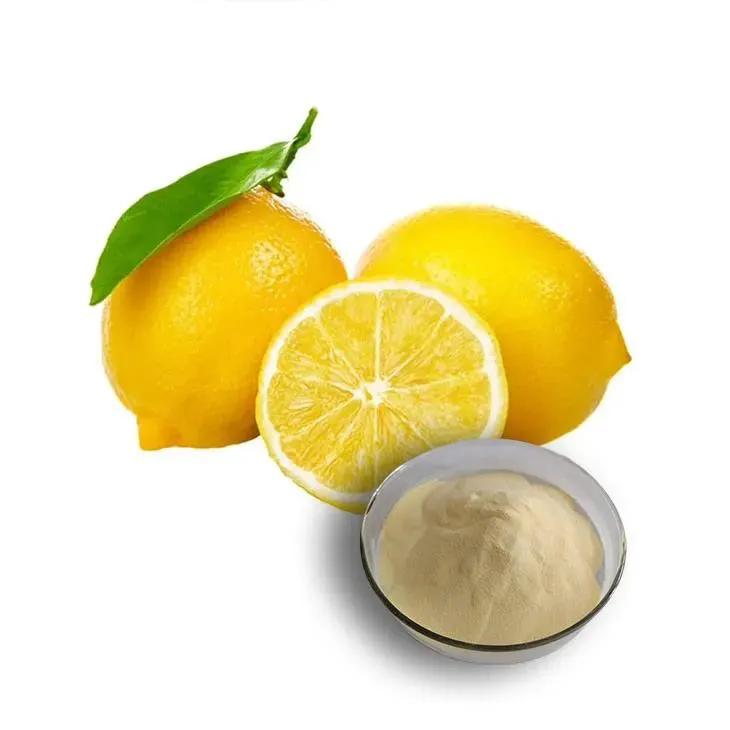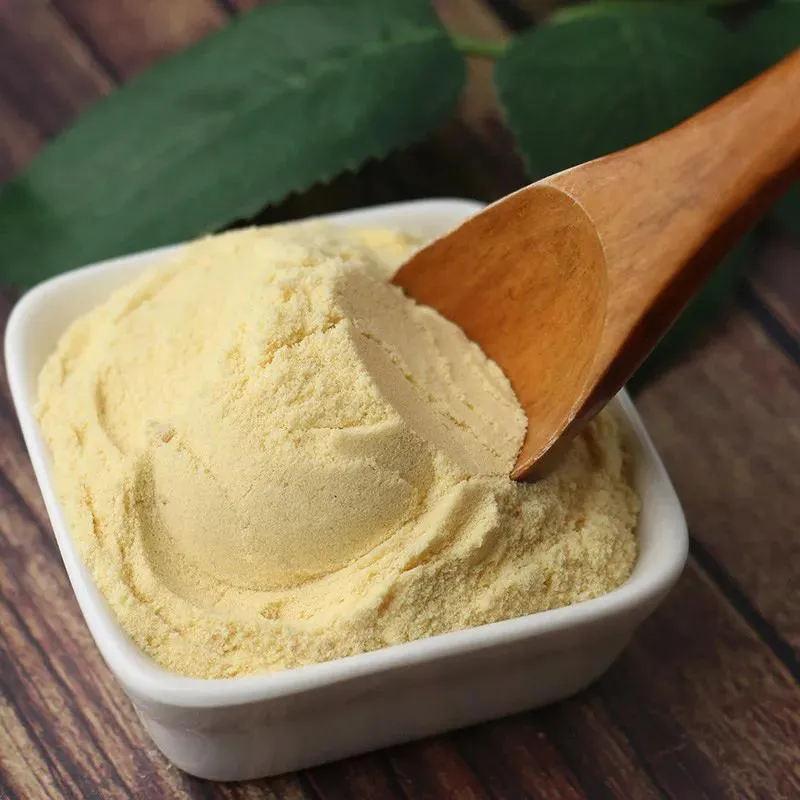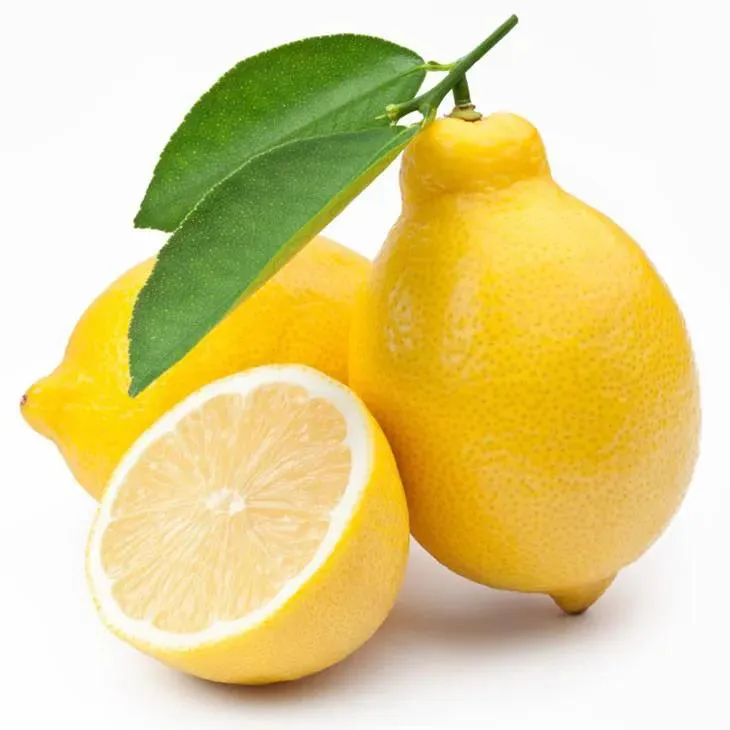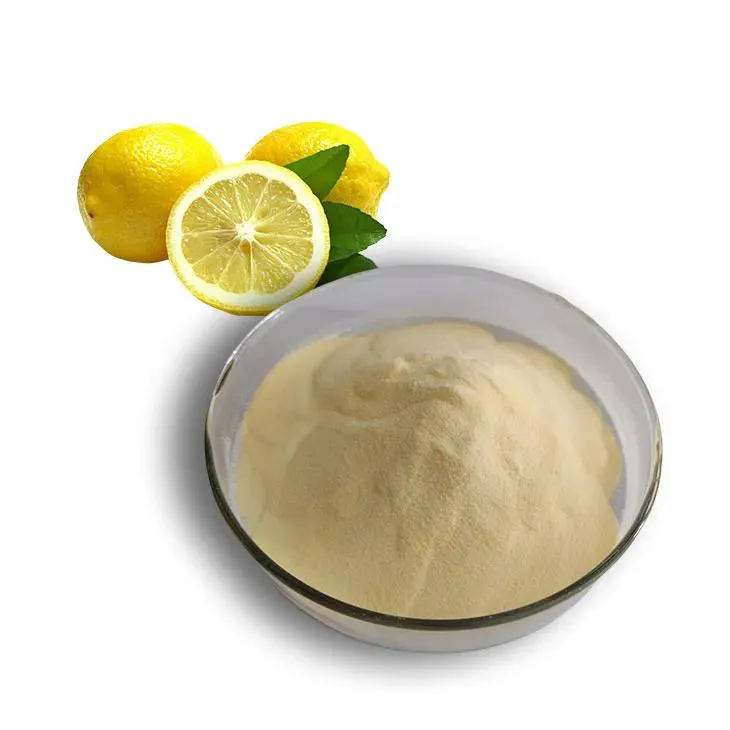- 0086-571-85302990
- sales@greenskybio.com
Lemon Juice Powder Production: A Complete Guide for Consumers and Manufacturers.
2024-12-19

1. Introduction
Lemon Juice Powder has become an increasingly popular product in recent years. It offers the convenience of lemon juice in a dried, powdered form, which has a longer shelf - life and is easier to store and transport. For consumers, it provides a versatile ingredient for cooking, baking, and making beverages. For manufacturers, it presents a profitable product with growing market demand. This guide will explore all aspects of Lemon Juice Powder production, from the initial sourcing of raw materials to the final packaging and marketing.

2. Sourcing Raw Materials
2.1 Lemon Selection
The quality of the lemons used is crucial in Lemon Juice Powder production. High - quality lemons should be selected. Lemons that are fresh, ripe, and free from blemishes are ideal. Different lemon varieties can also affect the flavor profile of the final product. For example, the Eureka lemon is known for its tartness, while the Meyer lemon has a sweeter, more floral flavor. Manufacturers may choose to use a single variety or a blend, depending on the desired taste of the lemon juice powder.
2.2 Sourcing Locations
Lemons are sourced from various locations around the world. The origin of the lemons can impact their quality and price. Some of the major lemon - producing regions include California in the United States, Sicily in Italy, and Andalusia in Spain. These regions are known for their favorable climates for lemon cultivation. When sourcing lemons, manufacturers need to consider factors such as the availability of a consistent supply, the cost of transportation, and the quality control measures in place at the source.
3. Juice Extraction
3.1 Preparation of Lemons
Before extraction, the lemons need to be properly prepared. This involves washing the lemons thoroughly to remove any dirt, pesticides, or contaminants. The lemons are then typically cut in half or quartered, depending on the extraction method used.
3.2 Manual vs. Mechanical Extraction
- Manual extraction can be done using a citrus juicer. This method is suitable for small - scale production or home use. It allows for more control over the extraction process, but it is time - consuming and labor - intensive.
- Mechanical extraction is more commonly used in large - scale manufacturing. There are various types of mechanical juicers available, such as centrifugal juicers and hydraulic presses. Centrifugal juicers work by spinning the lemon halves at high speed to separate the juice from the pulp. Hydraulic presses, on the other hand, apply pressure to the lemons to extract the juice. Mechanical extraction is more efficient and can handle larger quantities of lemons.

4. Filtration and Clarification
4.1 Filtration
Once the juice is extracted, it needs to be filtered to remove any solid particles such as pulp, seeds, and bits of peel. Filtration can be done using a variety of methods, including using cheesecloth, filter paper, or a filtration system. This step is important to ensure a smooth and clear lemon juice, which is essential for the production of high - quality lemon juice powder.
4.2 Clarification
In addition to filtration, clarification may also be required. Clarification helps to remove any remaining impurities and cloudiness in the juice. This can be achieved through methods such as centrifugation or the use of clarifying agents. Centrifugation involves spinning the juice at high speed to separate any remaining solids. Clarifying agents, such as gelatin or bentonite, can be added to the juice to help precipitate out impurities.
5. Concentration
5.1 Evaporation
To convert the lemon juice into a powder, it first needs to be concentrated. One common method of concentration is evaporation. The lemon juice is heated gently to evaporate the water content. This can be done using a variety of equipment, such as a vacuum evaporator or a heat exchanger. Evaporation under vacuum is often preferred as it allows for lower - temperature evaporation, which helps to preserve the flavor and nutrients of the lemon juice.
5.2 Reverse Osmosis
Another method of concentration is reverse osmosis. In reverse osmosis, the lemon juice is passed through a semi - permeable membrane under pressure. The water molecules are forced through the membrane, leaving behind a more concentrated lemon juice. Reverse osmosis is a more energy - efficient method compared to evaporation, but it requires more complex equipment.6. Drying
6.1 Spray Drying
Spray drying is one of the most common methods used to convert the concentrated lemon juice into a powder. In spray drying, the concentrated juice is sprayed into a hot air chamber. The hot air rapidly dries the droplets of juice, forming a fine powder. The temperature and airflow in the spray - drying chamber need to be carefully controlled to ensure the proper formation of the powder and to prevent over - drying or under - drying.
6.2 Freeze Drying
Freeze drying is another option for drying lemon juice. In freeze drying, the concentrated juice is first frozen and then placed in a vacuum chamber. The ice in the frozen juice is sublimated, which means it is converted directly from a solid to a gas without passing through the liquid phase. Freeze - dried lemon juice powder retains more of its flavor and nutrients compared to spray - dried powder, but it is a more expensive process.7. Quality Control
7.1 Testing for Purity
Quality control is essential in lemon juice powder production. One of the first steps in quality control is testing for purity. This involves checking for the presence of any contaminants, such as pesticides, heavy metals, or foreign substances. Analytical methods such as chromatography and spectroscopy can be used to detect and quantify these contaminants.
7.2 Assessing Flavor and Aroma
The flavor and aroma of the lemon juice powder are also important quality parameters. Trained tasters can evaluate the taste and smell of the powder to ensure that it has a characteristic lemon flavor and aroma. Additionally, chemical analysis can be used to measure the levels of key flavor compounds, such as citric acid and limonene.
7.3 Checking for Moisture Content
The moisture content of the lemon juice powder needs to be carefully controlled. Too much moisture can lead to spoilage and a shorter shelf - life, while too little moisture can affect the solubility and reconstitution of the powder. Moisture meters can be used to accurately measure the moisture content of the powder.8. Packaging
8.1 Packaging Materials
The choice of packaging materials is important for protecting the lemon juice powder from moisture, oxygen, and light. Common packaging materials include plastic pouches, glass jars, and aluminum foil packets. Plastic pouches are lightweight and cost - effective, but they may not provide the best barrier against oxygen. Glass jars are more expensive but offer better protection against light and can be more visually appealing. Aluminum foil packets are excellent for protecting against moisture and oxygen.
8.2 Packaging Design
The packaging design should also be considered. It should be eye - catching and informative, with clear labels indicating the product name, ingredients, nutritional information, and usage instructions. Additionally, the packaging should be easy to open and reseal to maintain the freshness of the powder.9. Benefits for Consumers
9.1 Convenience
Lemon juice powder offers great convenience for consumers. It can be stored for long periods without the need for refrigeration, unlike fresh lemon juice. It is also easy to measure and use, making it ideal for cooking, baking, and making beverages. For example, a small amount of powder can be added to a glass of water to make a refreshing lemon drink.
9.2 Nutritional Value
Lemon juice powder retains many of the nutrients found in fresh lemon juice, such as vitamin C, potassium, and antioxidants. These nutrients can provide various health benefits, including boosting the immune system, promoting healthy digestion, and reducing the risk of chronic diseases.
9.3 Versatility
The powder can be used in a wide variety of recipes. It can be used to add a tangy flavor to salad dressings, marinades, and sauces. In baking, it can be used as a substitute for fresh lemon juice in cakes, cookies, and muffins. It can also be used to make lemon - flavored ice creams, sorbets, and yogurts.10. Market Trends for Manufacturers
10.1 Growing Demand
The market for lemon juice powder is growing steadily. Consumers are increasingly looking for convenient and long - lasting alternatives to fresh lemon juice. This trend is expected to continue in the coming years, driven by factors such as the increasing popularity of healthy and convenient foods, and the growth of the food service industry.
10.2 Product Differentiation
To stand out in the competitive market, manufacturers are focusing on product differentiation. This can be achieved through factors such as using high - quality raw materials, offering unique flavors (such as blends with other fruits or herbs), and providing innovative packaging. For example, some manufacturers are offering lemon juice powder in single - serve packets, which are convenient for on - the - go consumers.
10.3 Sustainability
Sustainability is also becoming an important trend in the manufacturing of lemon juice powder. Consumers are more conscious of the environmental impact of the products they buy. Manufacturers are responding by implementing sustainable sourcing practices, reducing energy consumption during production, and using recyclable packaging materials.FAQ:
What are the main raw materials for lemon juice powder production?
The main raw material is fresh lemons. High - quality lemons are carefully selected. They should be ripe, free from diseases and pests, and have a good flavor. In addition, some additives or carriers may be used during the production process to ensure the stability and quality of the powder, such as maltodextrin.
How is the quality of lemon juice powder controlled during production?
Quality control during lemon juice powder production involves multiple steps. Firstly, strict inspection of raw materials is carried out to ensure the freshness and quality of lemons. During the production process, parameters such as temperature, pressure, and drying time are closely monitored. After production, the powder is tested for its content of key components like citric acid, as well as for its solubility, moisture content, and microbiological safety.
What are the common uses of lemon juice powder?
Lemon juice powder has a wide range of uses. In the food industry, it can be used as a flavoring agent in baking, confectionery, and beverage production. It can add a tangy lemon flavor to cakes, cookies, and soft drinks. In the home, it can be used for making lemon - flavored drinks, marinades for meats, or as a natural cleaning agent when diluted.
What are the benefits of lemon juice powder for consumers?
For consumers, lemon juice powder offers several benefits. It has a long shelf - life compared to fresh lemon juice, which makes it convenient for storage. It contains vitamins such as vitamin C, which has antioxidant properties and can boost the immune system. Also, it can be used in various recipes to add a fresh and zesty flavor without the hassle of squeezing fresh lemons every time.
What are the current market trends in lemon juice powder production?
Currently, there is an increasing demand for natural and high - quality lemon juice powder. Consumers are more interested in products without artificial additives. There is also a trend towards organic lemon juice powder production. In addition, the market is seeing a growth in the use of lemon juice powder in functional foods and beverages, such as those with added health benefits.
Related literature
- Lemon Juice Powder: Production and Applications in the Food Industry"
- "Quality Assurance in Lemon Juice Powder Manufacturing"
- "The Market Dynamics of Lemon - Based Powdered Products"
- ▶ Hesperidin
- ▶ citrus bioflavonoids
- ▶ plant extract
- ▶ lycopene
- ▶ Diosmin
- ▶ Grape seed extract
- ▶ Sea buckthorn Juice Powder
- ▶ Beetroot powder
- ▶ Hops Extract
- ▶ Artichoke Extract
- ▶ Reishi mushroom extract
- ▶ Astaxanthin
- ▶ Green Tea Extract
- ▶ Curcumin Extract
- ▶ Horse Chestnut Extract
- ▶ Other Problems
- ▶ Boswellia Serrata Extract
- ▶ Resveratrol Extract
- ▶ Marigold Extract
- ▶ Grape Leaf Extract
- ▶ blog3
- ▶ blog4
- ▶ blog5
-
Pure 85% Tomentil Extract.
2024-12-19
-
Reishi mushroom extract
2024-12-19
-
Plantain extract
2024-12-19
-
Licorice Root Extract Powder
2024-12-19
-
Astaxanthin
2024-12-19
-
Grape Leaf Extract
2024-12-19
-
Red Date Extract
2024-12-19
-
White mustard seed extract
2024-12-19
-
Saw Palmetto Extract
2024-12-19
-
Hawthorn powder
2024-12-19
-
Propolis Extract Powder
2024-12-19





















